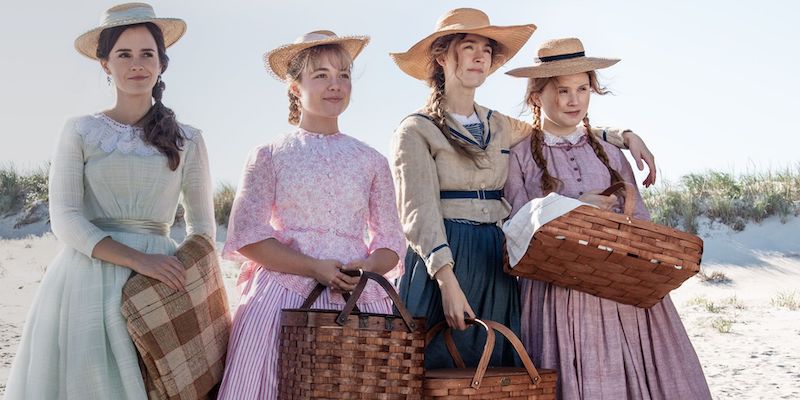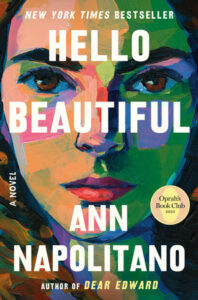
Parts of a Whole: Ann Napolitano on Reaching for the Vivacity and Connection of Little Women
“I wanted not only to be Jo, but part of her sisterhood.”
I wonder how much my love of the novel Little Women has to do with when I read it. I was probably in third grade, and the books I loved during elementary school feel like part of my personal foundation. I was new, as a human, and the total books I had read in my life numbered in the hundreds, instead of the thousands as they do now. My younger self had no sense of taste, no knowledge of genre; I simply read my way into fictional worlds, and they became part of me.
I read for comfort, and for company. I tramped in the snow with the March sisters. I peered into their warm, chaotic living room beside Laurie, the lonely boy from next door. Like most readers, I aspired to be like the brave, independent Jo. She and I were, after all, both writers in our bones, in an essential way that that had nothing to do with publication or success. Jo made up stories by candlelight, and I wrote sentences in my head all day long, a practice I wouldn’t know was unusual until much later.
I didn’t just love Jo, though; I loved her sisters too. It’s impossible and wrong to consider the girls separately; they’re four parts of a whole, a beautiful forest with intertwined roots and branches. Each March sister recognized that her strength required her sisters’—this is part of their devastation at losing Beth. The three remaining sisters know they’ll never be whole again.
I felt woven into all of the March sisters: for all my similarities to Jo, she was more extroverted and fiery; I am a quiet homebody, like Beth, and l share her and Meg’s dislike of confrontation. The life force within the novel is the four sisters, blisteringly alive for and with each other. I wanted not only to be Jo, but part of her sisterhood.
The March sisters, from the first page of Alcott’s novel to the last, show us that we are not enough, and not whole, when we are on our own. We need each other.
I was lucky enough to spend time with a set of sisters like the ones in Little Women. During middle and high school, I slept at my friend Leah’s house as often as I slept at my own, and part of why I loved being there was the constant parade of her many aunts in and out of the house. Leah’s mom has five sisters: they are all short, most have curly hair, and their faces resemble one another to the extent that they look like different versions of a whole.
They would stop by unannounced and stay for five minutes, or five hours; they cooked together, picked up conversations that had been dropped days earlier, and supported one another immediately and without question. I loved simply watching Leah’s aunts interact, and the way they wove around each other when they were in the same room. Each woman was herself, but somehow more, when the sisters were together.
There was a touch of loneliness inside me, when I was young, that made me re-read Little Women, and that same loneliness brought me to Leah’s doorstep, into her family’s noisy kitchen filled with old stories and cackles of laughter. The company of those sisters, both real and fictional, filled me with me delight and comfort.
Over the last few years, that loneliness has returned, not just for me, but I think for many of us. I always live inside myself, as a reader and a writer, but the pandemic amplified that. Connections that I thought were strong faltered. My father died, and the people that loved him were unable to gather to mourn. I no longer live near either my childhood home, or Leah’s.
During this time, I wrote to feel better, because that’s what I do, and I found myself writing about a family with four sisters. These girls erupted to life on the page, and the engagement I craved, I found in their presence. Little Women didn’t enter my mind, but when these fictional sisters started talking to one another about the March girls—which one of us is Jo? Don’t call me Beth—my surprise faded quickly.
Of course, they were reaching for Little Women, because I was reaching for the vivacity and connection of that story. I was pressed up against the March’s living room window again, aching with loneliness but also lit up by what existed inside. The March sisters, from the first page of Alcott’s novel to the last, show us that we are not enough, and not whole, when we are on our own. We need each other. Leah’s aunts taught me this long ago, too. Don’t you want to be, and have, more?
I do. It’s part of why I write, part of why I try to love as deeply as I can, part of why I hug books like Little Women close to my chest. There is something in that tussle of sisters—rarely peaceful, always ferociously affectionate—that gives me something to write and live towards.
______________________________

Hello Beautiful by Ann Napolitano is available now via Random House.
Ann Napolitano
Ann Napolitano is the bestselling author of Hello Beautiful which was selected as Oprah’s 100th Book Club pick; Dear Edward, an instant New York Times bestseller, a Read with Jenna selection, and an Apple TV+ series; A Good Hard Look, and Within Arm’s Reach. For seven years, Napolitano was the associate editor of the literary magazine One Story, and she received an MFA from New York University. She has taught fiction writing at Brooklyn College’s MFA program, New York University’s School of Continuing and Professional Studies, and Gotham Writers Workshop.



















